‘Nothing justifies this’: On the front line in Kharkiv, a city destroyed by Putin’s war
Before hostilities, many in the northeastern Ukrainian city empathised with Russia. Now, after weeks of shelling, views have changed. Kim Sengupta, who reported from Kharkiv before the conflict, returns to a city transformed

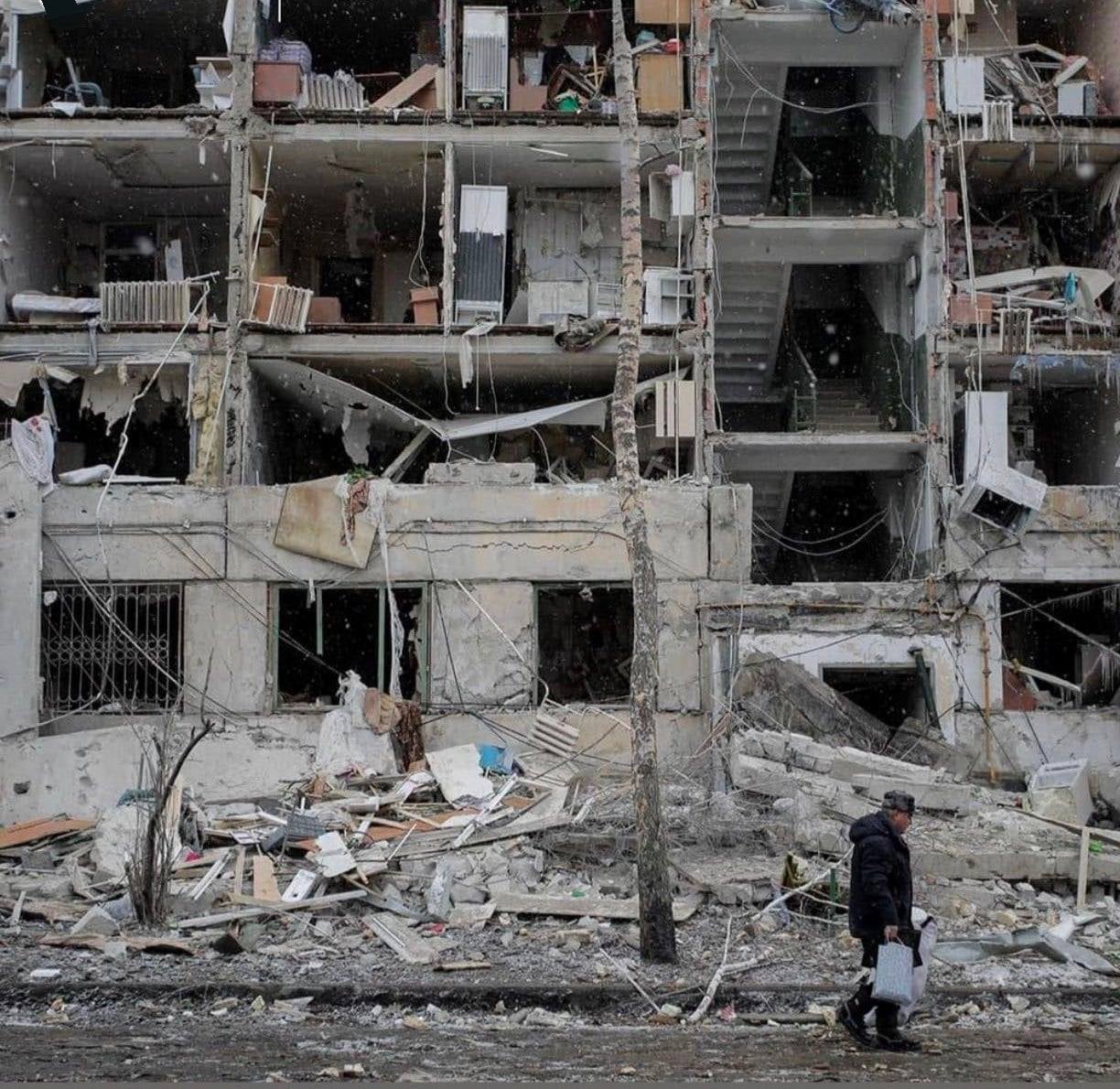
Your support helps us to tell the story
From reproductive rights to climate change to Big Tech, The Independent is on the ground when the story is developing. Whether it's investigating the financials of Elon Musk's pro-Trump PAC or producing our latest documentary, 'The A Word', which shines a light on the American women fighting for reproductive rights, we know how important it is to parse out the facts from the messaging.
At such a critical moment in US history, we need reporters on the ground. Your donation allows us to keep sending journalists to speak to both sides of the story.
The Independent is trusted by Americans across the entire political spectrum. And unlike many other quality news outlets, we choose not to lock Americans out of our reporting and analysis with paywalls. We believe quality journalism should be available to everyone, paid for by those who can afford it.
Your support makes all the difference.An attempted Russian assault had been repulsed, the barrage of missile strikes and artillery rounds had quietened: Captain Aleksandr Osadchy had a feeling of fleeting optimism – then came the telephone call he had dreaded getting from his brother.
Their 85-year-old mother, Maria, had been killed during shelling of the village of Kamianka, at the home where the family had lived for generations, one she had refused to leave for a safer area even as the fighting intensified.
“She was a very determined woman and she wouldn’t change her mind,” says Captain Osadchy. “Like so many people of that generation she had a tough life, it is such a pity it ended so sadly, so unnecessarily.”
Captain Osadchy, of the volunteer “Cossack Battalion” 226, was telling me about the high numbers of civilian casualties in Kharkiv, as violence continued in Ukraine’s second city just 25 miles from the Russian border. Then at one point he paused, and added quietly that he had learned of his mother’s death just 24 hours earlier.
“In fact she had died a few days ago. My brother and others have been trying to get hold of me, but communications are very difficult now as you can imagine. I am still trying to process this in my mind. But we have got so much to do, that’s probably not a bad thing, it’s best to keep busy, ” he reflects.
Captain Osadchy’s brother, Andrei, a former soldier, had stayed behind at home to look after their mother.
“The day after he buried our mother he went to Slovyansk [in the Donbas] and joined the army. We are defending our country, our people, our families, our community, we are also avenging those who had been killed,” says Aleksandr. “We hear talk of negotiations, but we’ll keep on fighting the invaders until we get real peace with the invaders leaving out country.”
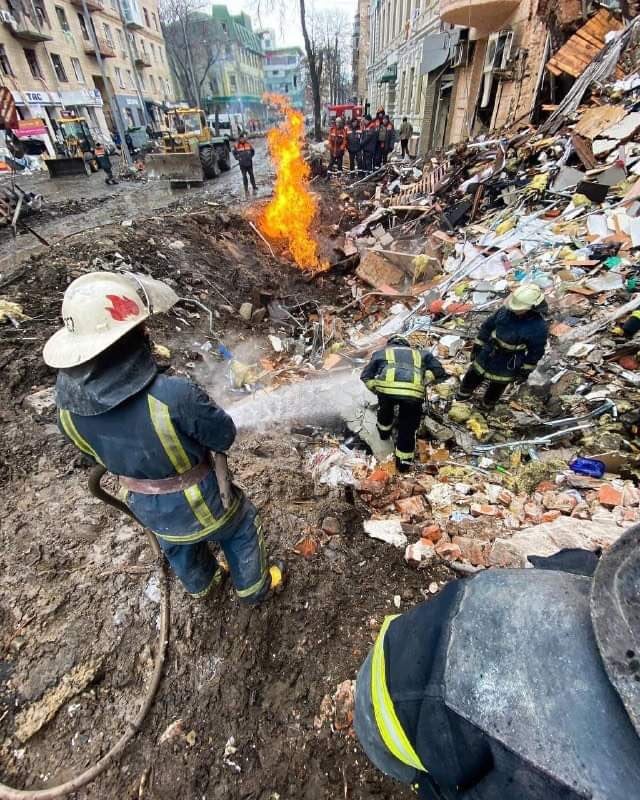
The concept in these parts of the “the family, the community, the people” is going through a painful re-evaluation.
Vladimir Putin has repeatedly laid out the narrative in the run-up to the invasion that Ukraine was a founding block of the Russian house: that the war was to free ethnic Russians in Ukraine who were being oppressed by fascists and neo-Nazis : that it was to right a historic wrong.
Around 74 per cent of Kharkiv’s 1.4 million population are Russian speakers. Ukraine’s president, Volodymyr Zelensky, claimed before the conflict began that Moscow could try to seize the city under the pretext of “protecting” these people – an act which “will be the beginning of a large-scale war”.
Kharkiv is also the home base of politicians deemed to be pro-Moscow, such as Yevhen Murayev, a former Ukrainian MP who was named by the British government as Putin’s chosen leader of a puppet regime following invasion and occupation. That particular claim was far-fetched, but deep suspicion about a “fifth column” has long been present here.
There were at least some Russian speakers who had declared that they would never take up arms against Russia.
One of them angrily told me when I visited the city a month before the war that “it is unthinkable for me and my friends to pick up a gun and start fighting the Russians. We have lived together all our lives and now there are people who are trying to turn us into enemies and start a bloodbath”.
Kiril Semenov, a 48-year-old electrical engineer accused the US and the west of using Ukraine as a proxy against Russia. “And if the fighting does start, will Nato come here to fight the Russians? Of course not, they have already said they would not,” he wanted to point out.
Mr Semenov has not picked up a gun, but he is now part of a citizens group distributing food to Ukrainian forces, and people in need, as well as clearing up with after missile and artillery strikes.
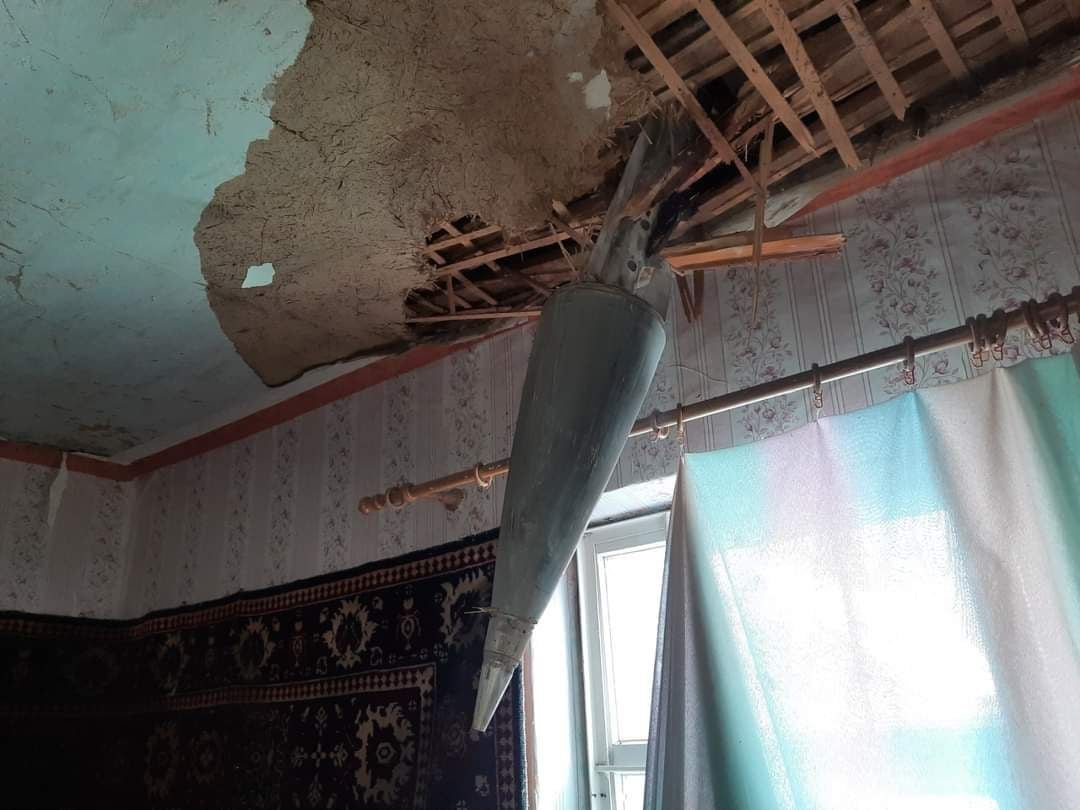
“I was right wasn’t I in saying that Nato will not come to fight beside Ukraine? We Ukrainians have to help ourselves. I still think the war could have been avoidable,” Mr Semenov says.
“But nothing justifies this kind of bombardment, the killing of ordinary people, like those who lived in that building,” he says pointing at the wreckage of a 10-storey residential block in Nemyshlianskyi, the district where he lives. Eight people died in the attack.
The fighting has not stopped for a single day in and around Kharkiv. One of the first of the seven Russian generals to be killed in this war, Major General Vitaly Gerasimov, died near here earlier this month. Around 220 artillery and mortar rounds were fired over 24 hours last weekend, say the Ukrainians, and some hit the neutron source nuclear facility at the Kharkiv Institute of Physics and Technology.
There was constant shelling on Monday along three of the districts we went through – Saltivka, Oleksiyivka and Pyatyhatky – with the targets ranging from the premises of an aluminium company to residential areas.
At an apartment block in Saltivka – 90 per cent empty with most of the residences having fled – Yevgeny Afonin was at a loss why the 11-storey building, where he is one of only four residents, continues to get regularly shelled.
“Four people from one family were killed in the first week of the bombing. Then we had a few more deaths and people getting injured and almost everyone left,” he says.
“But the shelling goes on at night and in the day. Sometimes they have a break for a few hours. But then they start again, as you can hear.”
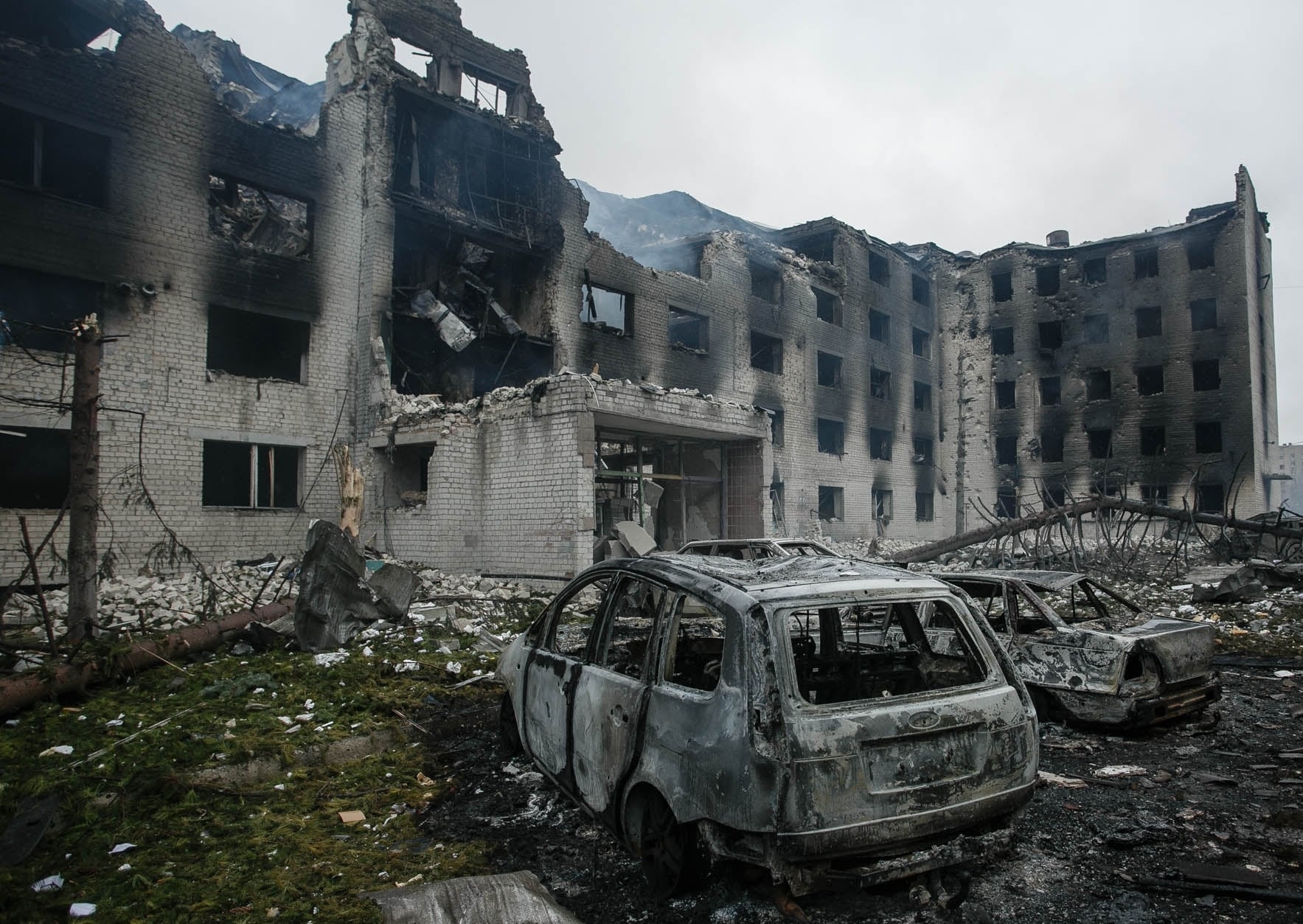
Further along the same stretch of the road Valentin Melnyk was walking along on crutches. His left leg had been pitted by shrapnel as a shell landed on the road while he was driving home.
He describes what happened: “I was trying to get back home before curfew. Suddenly there was an explosion in front of me and some parked cars caught fire. Metal came through the car door and through my legs. I have had one operation. The doctors say I’ll need two more, but even then they don’t know if I’d be able to walk again.”
It is one of the tragic ironies of President Putin’s ‘war of liberation’ that two largely Russian speaking cities - Mariupol and Kharkiv - have taken the worst pounding. The result, say residents, is that instead of being welcomed, Russian forces have faced defiant resistance.
Ihor Telekhov, the Mayor of Kharkiv, lists the destruction since the start of the war: 1,177 apartment blocks demolished, along with 15 hospitals, 69 schools and 53 kindergartens. Around 520 people have been killed in the fighting, according to the Emergency Services of Ukraine.
“The Russian army, the aggressor’s army is purposefully firing on residential neighbourhoods. These are not just individual households, but entire neighbourhoods which have been hit,” Mr Telekhov says.
The mayor acknowledges that “before the war started, almost one in four was in contact with relatives, acquaintances, and many friends in Russia. Kharkiv has always been considered more or less loyal to Russia. Today the attitude to Russia, the aggressor, has changed dramatically, each of us is ready to defend the city to the end”.
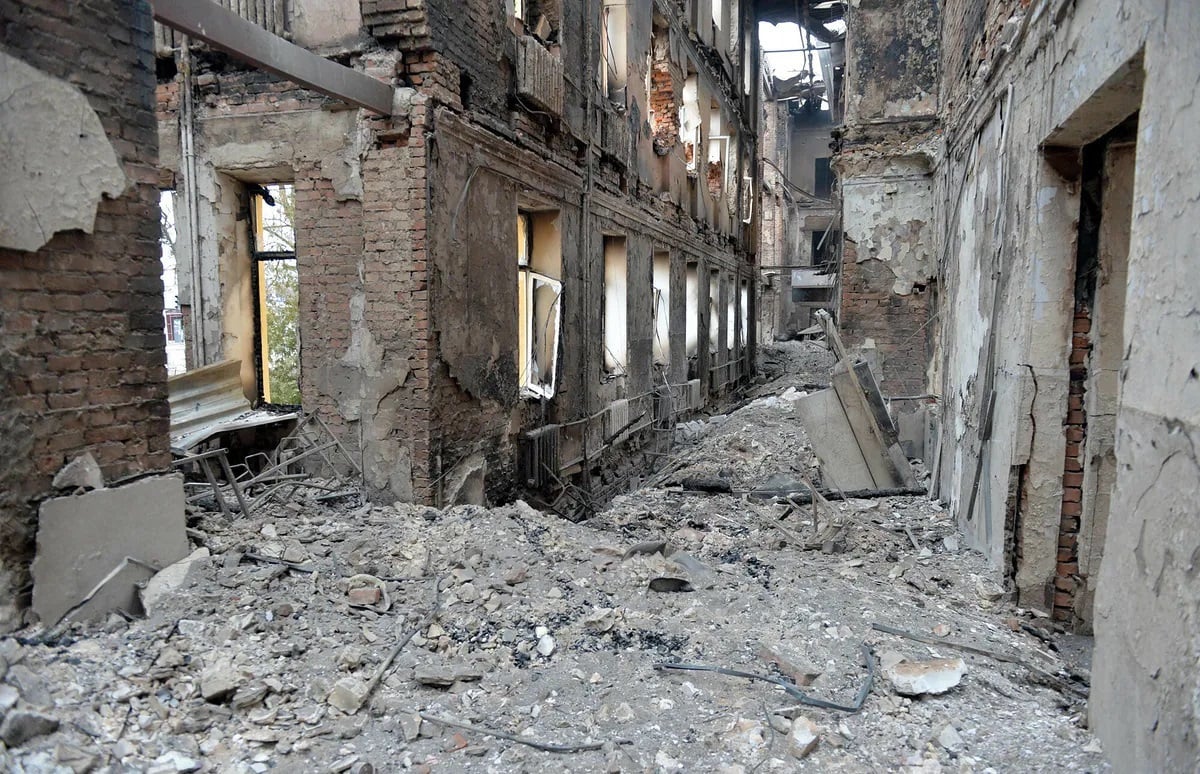
Oleg Posohov, the master sergeant of the Cossack Battalion, comments: “The Russians create their version of history, and then get angry when it doesn’t match with reality. The people of Kharkiv were never simply going to stand doing nothing and let Putin’s troops come in.
“I would say about 30 per cent of the population here were Russian sympathisers, 25 per cent of them are now committed to Ukraine,” says Sergeant Posohov. “There are some spies and saboteurs among the remaining five per cent; we have caught some of them, they were passing on information and photos to the Russians to help them bomb and also to try and get into the city.”
Russian forces entering Kharkiv have been driven back. Anti-tank weapons, Javelins, the NLAWs, provided by the US and UK, have been highly effective, say Ukainian forces, in close quarter combat. A recently destroyed Russian armoured personnel carrier (APC) lying smoking on the road east was an example of that, a soldier points out.
“But we don’t really have enough anti-tank weapons,” adds Sergeant Posohov. “If the Javelins and NLAWs are too expensive, then give us some RPG-7s. They will be good at short range, Ukrainians have always been skilful at fighting.”
Many members of Battalion 226 claim Cossack blood in them, thus the name it has been given.
Metal came through the car door and through my legs. I have had one operation. The doctors say I’ll need two more, but even then they don’t know if I’d be able to walk again.
“One of my ancestors was a Cossack military chief, quite a few of us have a Cossack link. But we are Ukrainian Cossacks, not Russian ones. Mikhailo Koteivets, our battalion commander is a Cossack, he fought in the Soviet army in Afghanistan, so he knows about the weaknesses of the Russians.”
At the underground headquarters of one of the most proficient and experienced Ukrainian units in Kharkiv, soldiers ate a hurried lunch before going out on a mission. Oleg Supareka, putting together a combat team, also has experience of serving with Soviet forces, having been deployed in the first Nagorno-Karabakh war in the mid-1990s.
“Judging by their poor performance in this war, not a lot has changed, there is a lot of corruption and inefficiency. I maintained contact in the Russian military for a while, and they spent more time on ceremonial duties than on fighting practice,” says Commander Supareka.
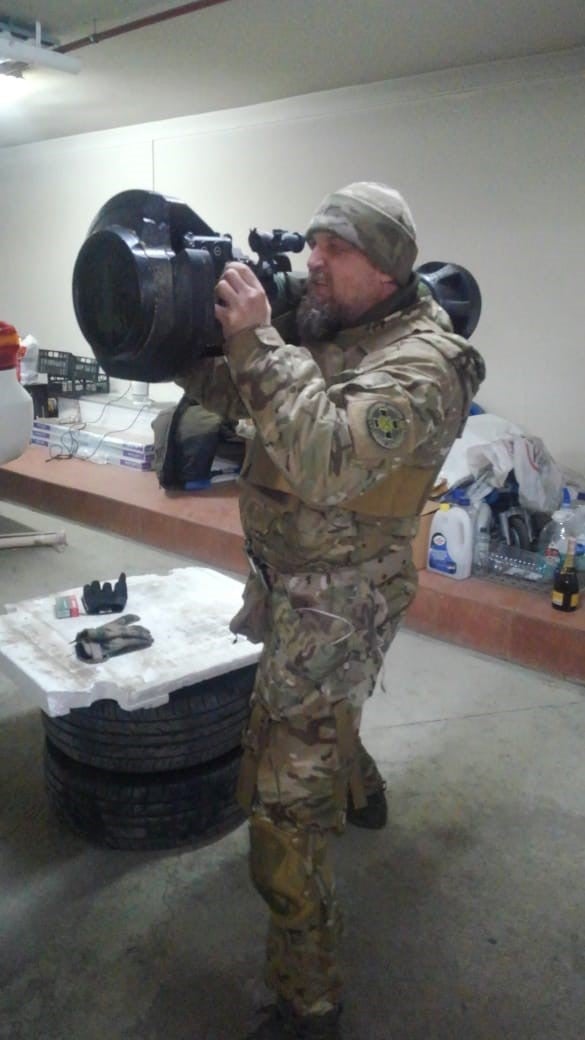
Like many others on the front line he did not feel optimistic that the current round of negotiations will lead to peace breaking out in the immediate future.
“These talks have been going on for a long time, we’ll see what happens. They talk, but meanwhile, the Russians keep on attacking this city.”
A group of residents were cleaning up a large amount of debris outside a grand building hit by a missile strike.
“This is a building with an interesting past,” says one of the volunteer cleaners, Denis Zhuravlov, associate history professor at Kharkiv’s Karazin University.
“ It was the headquarters of the Red Army in 1919, then it became the headquarters of the counter-revolutionary White Guard under General [Anton] Denikin. Then it was a well-known courthouse until this attack.
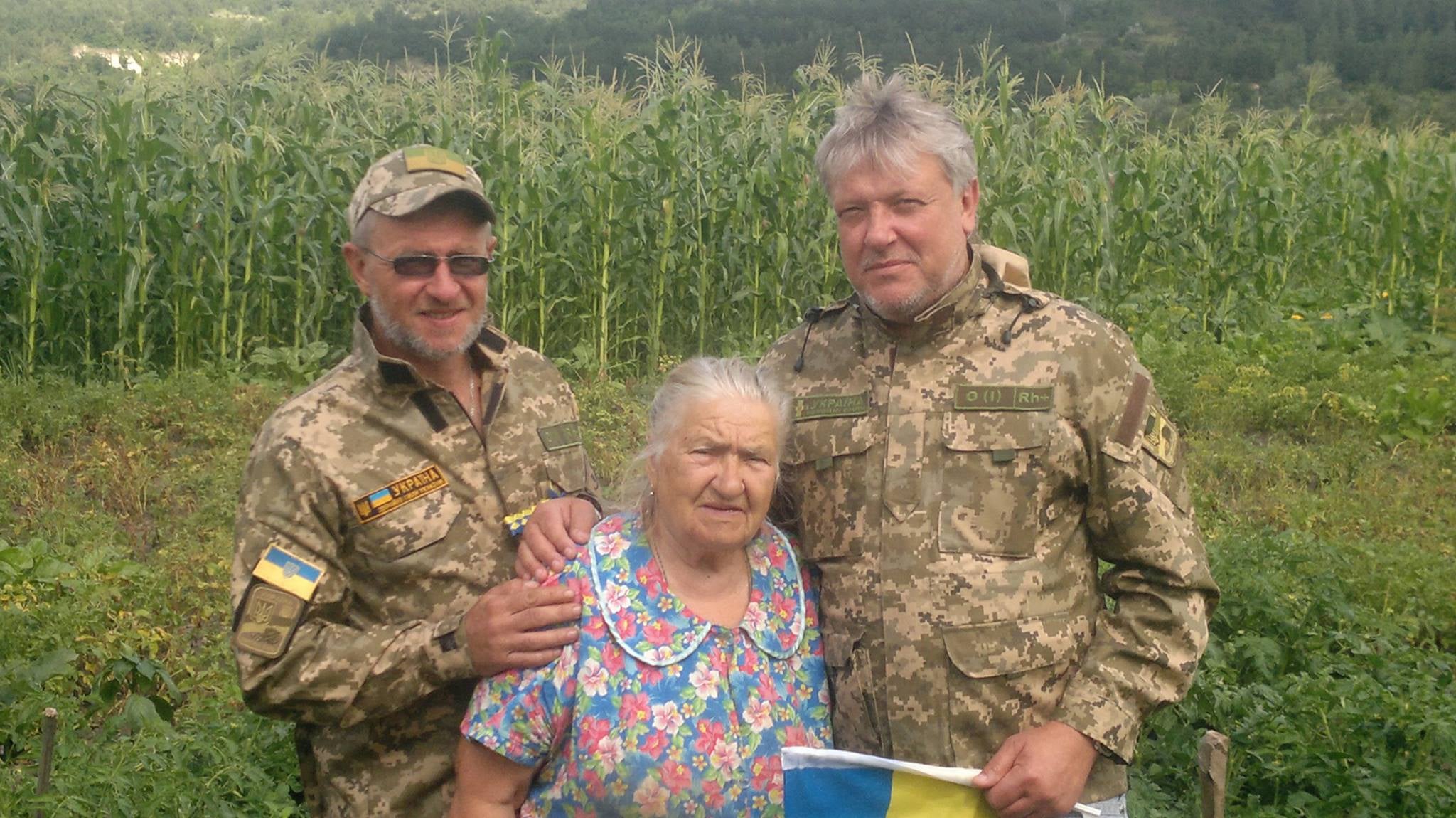
“One can’t help feeling that this is just another example of the Russians trying to erase our history.”
Join our commenting forum
Join thought-provoking conversations, follow other Independent readers and see their replies
Comments